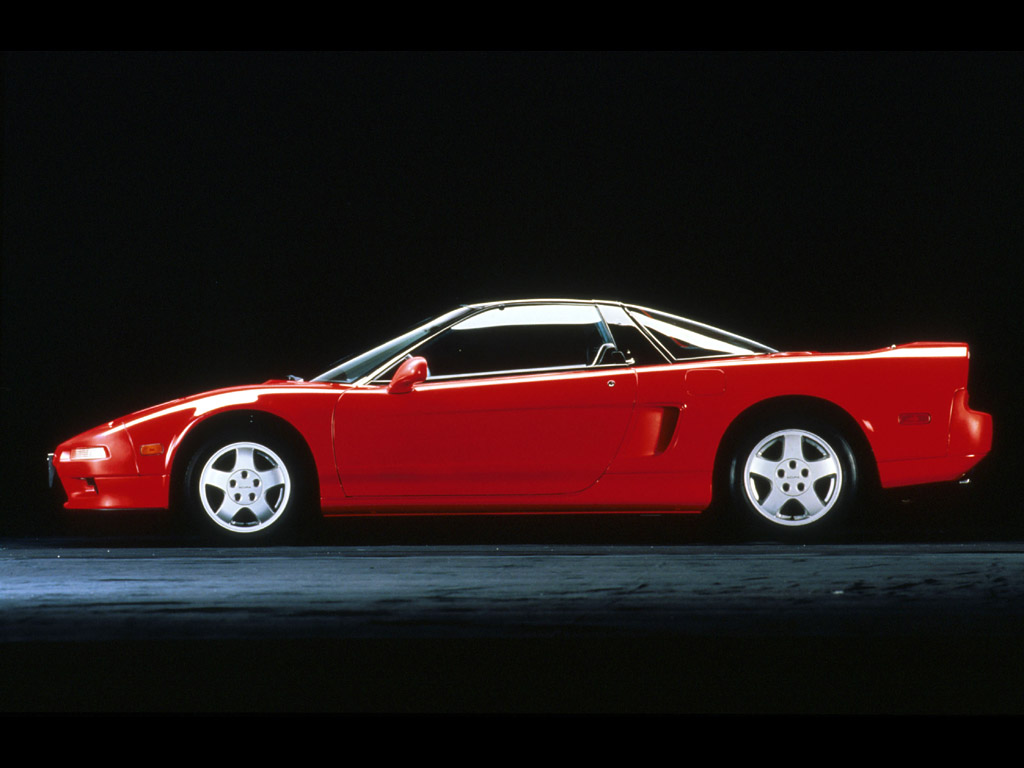1990 Acura NSX Prototype
(From Acura Press Release) The intention in creating the Acura NSX, first introduced for the 1991 model year, was to produce a hand-built, exotic, mid-engine sports car that would establish entirely new levels of prestige, performance, refinement, drivability and reliability. The aluminum-bodied NSX defined a new interpretation of the exotic sports car through state-of-the-art, lightweight technology.
The NSX-T model introduced during the 1995 model year, which featured a removable roof panel, broadened the appeal of the NSX. It also succeeded in maintaining the extremely high levels of performance and sophistication established by the NSX coupe. Technological achievements included an optional Formula One-inspired Sequential SportShift' automatic transmission with a unique steering column-mounted electronic shifter; a drive-by-wire throttle system and standard variable, electric power-assisted steering (EPS), a compact and efficient system pioneered in the first-year NSX equipped with automatic transmission.
The 1997 NSX/NSX-T took a giant step forward in performance with several major enhancements - most notably a larger, more powerful 3.2-liter, 290 hp, V-6 engine with a 6-speed manual transmission. Other significant engineering updates included larger brakes and an improved Anti-Lock Braking System (ABS), refinement to the electric power steering system, application of new aluminum alloys for lighter-weight, high-rigidity body panels, adoption of special heat-reflecting window glass and an anti-theft vehicle immobilizer feature.
Beginning in 2002, all NSXs feature a removable aluminum roof panel that can be easily stowed under the rear glass hatch. Also, in 2002, the NSX received a variety of styling enhancements to modernize the car's looks and refinements to the chassis to ensure its competitiveness as a world class sports car. The front fascia of the NSX was updated with a higher hood, and a redesigned front bumper and spoiler. The front headlights changed from pop-up halogen units to fixed position Xenon High-Intensity Discharge (HID) lamps. Other external styling refinements for 2002 included new mesh side air intakes, a trunk lip spoiler, more aggressive exhaust tips and a redesigned taillight configuration. Chassis refinements included a larger diameter rear stabilizer bar, firmer front springs and bigger wheels and tires to enhance the car's dynamic handling characteristics. The enhancements together combined to reduce the car's coefficient of drag from 0.32 to 0.30 and raise the top speed from 168 to 175 mph.
